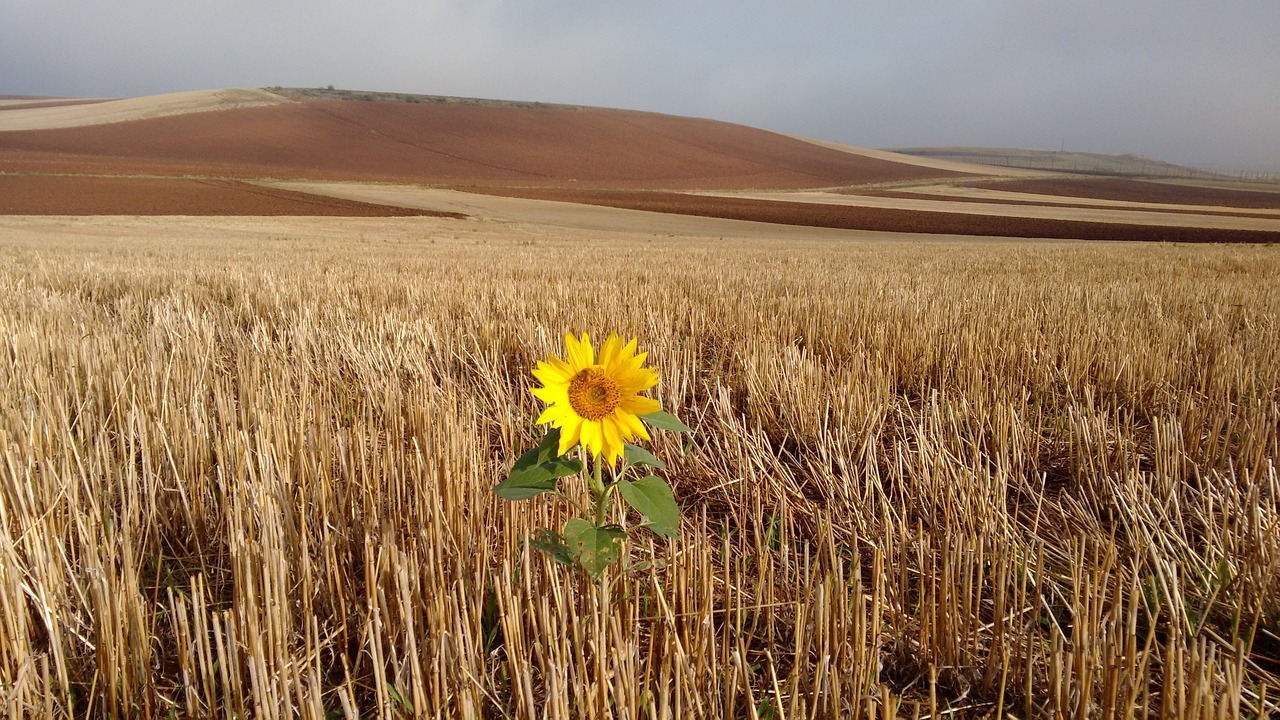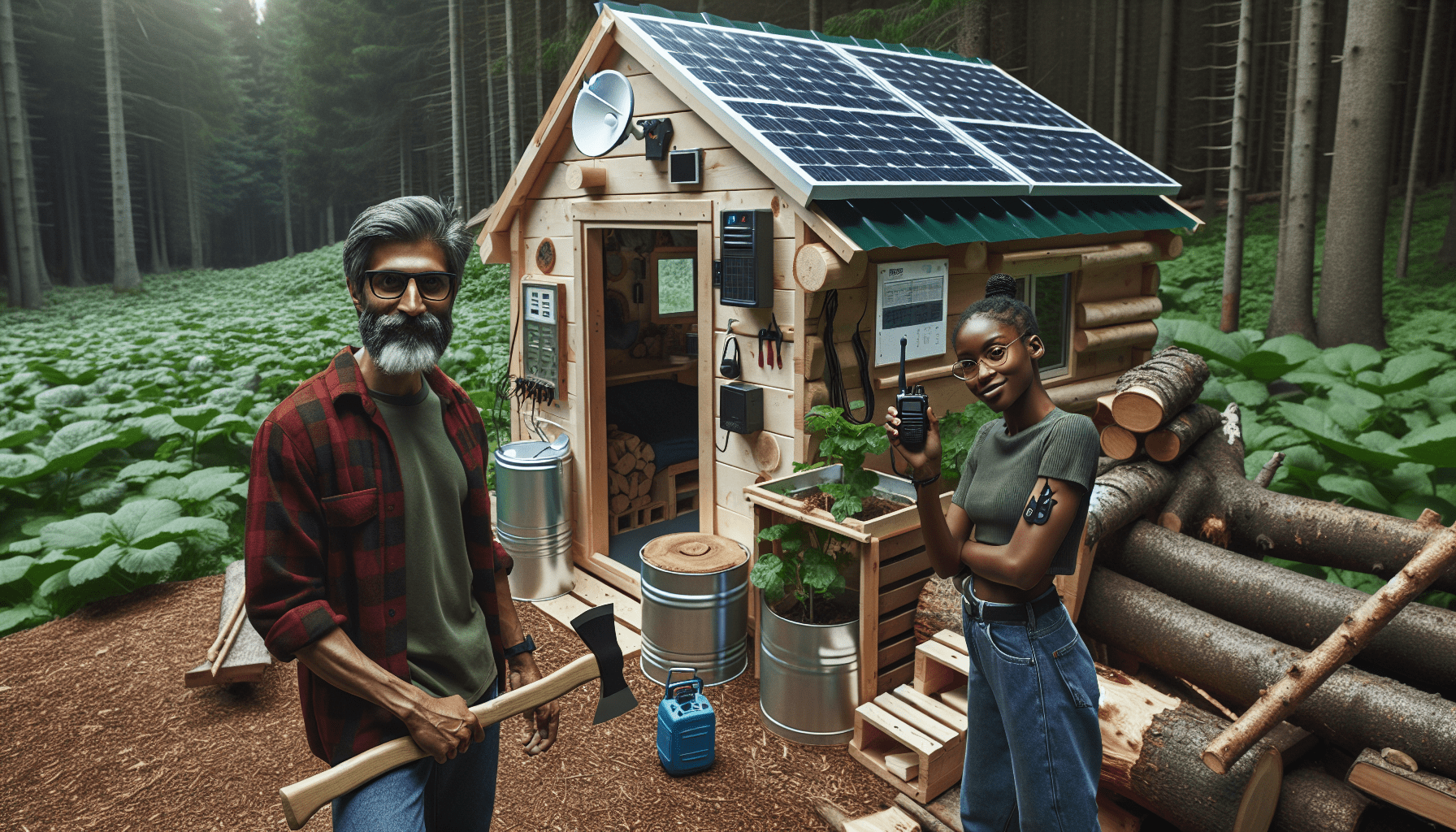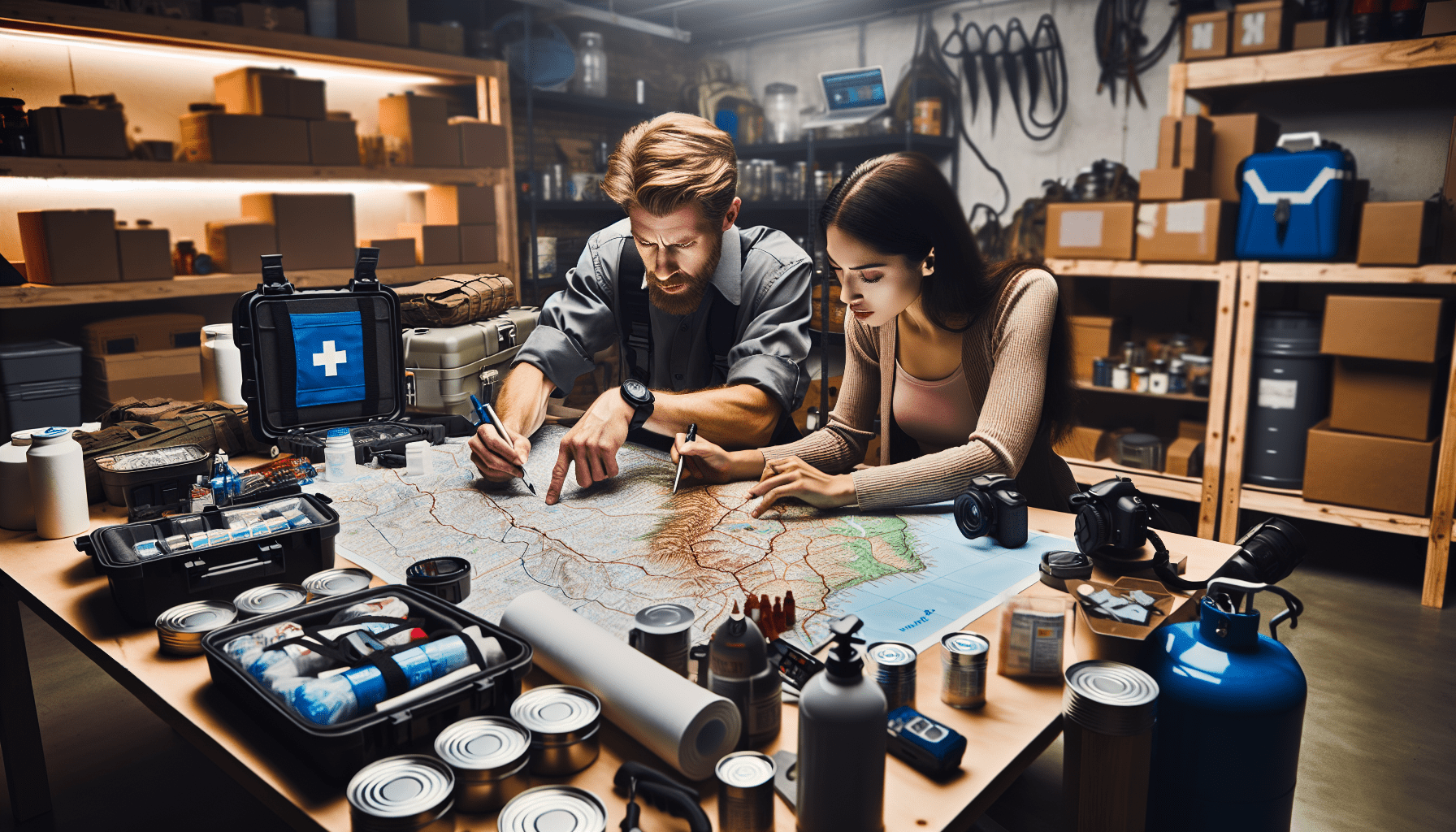Are you interested in becoming prepared for any situation? Look no further! In this article, we will provide you with key tips for prepper education and training. Whether you are a beginner or have some experience, these tips are sure to enhance your knowledge and skills. From learning essential survival techniques to acquiring the necessary supplies, we will guide you through the process step by step. Get ready to embark on a journey of preparation and self-sufficiency!

Building a Solid Foundation
Identify your goals and priorities
Before diving into prepper education and training, it’s vital to identify your goals and priorities. What are the primary reasons for your interest in prepping? Are you focused on personal safety, self-sufficiency, or disaster preparedness? Understanding your goals will guide your learning journey and help you prioritize specific skills and knowledge.
Assess your current knowledge and skills
Take some time to assess your current knowledge and skills. What areas do you feel confident in, and where do you have gaps? Are you already familiar with basic first aid or navigation? Understanding your strengths and weaknesses will enable you to effectively plan your prepper education and training journey, ensuring that you address any areas that need improvement.
Research and gather resources
The next step in building a solid foundation for prepping is to conduct thorough research and gather resources. There is a wealth of information available online, in books, and through prepper communities. Look for reputable sources that provide comprehensive guides, instructional videos, and checklists. Consider joining online forums or social media groups where you can connect with experienced preppers and learn from their insights and experiences.
Developing Essential Skills
First aid and medical training
One of the most critical skills for preppers is first aid and medical training. In any emergency situation, knowing how to provide immediate care can mean the difference between life and death. Take a certified first aid course that covers CPR, wound management, and general medical emergencies. Additionally, consider furthering your knowledge in advanced medical skills, such as suturing or administering intravenous fluids.
Self-defense and physical fitness
In a survival scenario, physical fitness and self-defense skills become paramount. Regularly engage in physical exercise that improves your strength, stamina, and flexibility. Additionally, consider taking self-defense classes to learn techniques for personal safety and protection. These skills will not only provide you with physical competence but also increase your confidence and ability to handle challenging situations.
Navigation and map reading
The ability to navigate and read maps is invaluable in emergency situations. Understanding how to use a compass, interpret topographic maps, and navigate with GPS devices will enable you to find your way even in unfamiliar territories. Invest time in learning these skills and practice them regularly, ensuring that you can confidently rely on your navigation abilities when faced with challenging situations.
Basic survival skills
Basic survival skills are fundamental for any prepper. These include fire-building, shelter construction, water procurement, and food foraging. Familiarize yourself with different fire-starting techniques, learn how to build improvised shelters using natural materials, and develop essential foraging knowledge to identify edible plants in your environment. These skills will enhance your ability to survive in various situations, whether in the wilderness or during a disaster.
Communication and signaling
Communication is crucial, both within your prepper community and with the outside world. Learn effective communication techniques, including using radios, walkie-talkies, or other methods to transmit essential information. Additionally, familiarize yourself with signaling techniques such as Morse code or smoke signals, as these methods can prove vital when traditional communication channels are compromised.
Gaining Knowledge in Emergency Situations
Understanding different types of emergencies
To be prepared for any emergency, it’s essential to understand the different types of emergencies that could arise. Familiarize yourself with natural disasters like earthquakes, hurricanes, or floods, as well as human-made emergencies such as terrorist attacks or civil unrest. Knowing the characteristics and potential risks associated with each type of emergency will enable you to tailor your preparedness strategies accordingly.
Studying disaster response and government protocols
To further enhance your knowledge and preparedness, study disaster response protocols and government guidelines. Research the emergency management agencies in your country and familiarize yourself with their recommended procedures and evacuation plans. Understand how local authorities coordinate emergency responses and the roles they play in providing assistance during crises. This knowledge will help you align your efforts with established protocols and maximize your chances of a successful response.
Learning about local risks and hazards
In addition to understanding broader emergency situations, it’s vital to learn about the specific risks and hazards in your local area. Research potential threats such as wildfires, tornadoes, or pollution incidents that may be unique to your region. By understanding these risks, you can take necessary precautions and tailor your prepping efforts to address the most probable scenarios you might face.
Preparing a Well-Stocked Emergency Kit
Identifying essential items for survival
A well-stocked emergency kit is crucial in times of crisis. Begin by identifying the essential items necessary for survival. These may include water, non-perishable food, a first aid kit, flashlights, batteries, a multi-tool, a whistle, and personal hygiene items. Consider the specific needs of your family, such as medications or pet supplies, and ensure you have enough supplies to sustain everyone for at least 72 hours.
Assembling a comprehensive emergency kit
Once you have identified the essential items, it’s time to assemble a comprehensive emergency kit. Purchase or gather the necessary supplies and organize them in a durable, waterproof container. Ensure that your kit is easily accessible and that everyone in your household knows where it is located. Regularly review the contents, replacing expired items or adjusting the kit based on changing needs.
Regularly updating and maintaining your kit
Building a comprehensive emergency kit is not a one-time task. Regularly update and maintain your kit to ensure its effectiveness when needed. Check expiration dates on food and medications, rotate water supplies, and replace worn-out or expired items. Additionally, periodically review and update your emergency contact information and any relevant documents, such as insurance policies or identification records.

Learning Sustainable Food and Water Strategies
Mastering gardening and food preservation techniques
Being self-sufficient in terms of food is a crucial aspect of preparedness. Mastering gardening and food preservation techniques can help you sustain yourself during emergencies or long-term disruptions. Learn the basics of gardening, such as soil preparation, plant selection, and pest control. Additionally, explore food preservation methods like canning, dehydrating, or fermenting, allowing you to store and preserve your harvest efficiently.
Exploring alternative water sources and purification methods
Access to clean water is vital in any emergency situation. Explore alternative water sources and purification methods to ensure you have a sufficient supply. This may involve learning about rainwater harvesting, setting up water filtration systems, or understanding natural water sources in your environment. Additionally, invest in portable water filtration devices or water purification tablets as part of your emergency kit.
Mastering Self-Sufficiency
Building and maintaining a shelter
Self-sufficiency includes the ability to create and maintain a suitable shelter. Expand your knowledge of shelter-building techniques, such as constructing debris shelters, tarp shelters, or even permanent structures if feasible. Understand the significance of insulation, ventilation, and protection from the elements when developing your shelter. Practice building and maintaining different types of shelters to gain confidence in your ability to create a safe and comfortable living space.
Generating alternative sources of power
In situations where traditional power sources are compromised, it’s crucial to have alternative sources of power. Learn about different options for generating electricity, such as solar panels, wind turbines, or portable generators. Understand the advantages and limitations of each method and invest in the appropriate equipment to meet your energy needs. Additionally, familiarize yourself with basic electrical maintenance to ensure your power sources remain operational.
Learning basic repair and maintenance skills
Self-sufficiency also involves the ability to handle basic repairs and maintenance tasks. Develop essential skills such as plumbing repairs, electrical troubleshooting, or carpentry. Acquire the necessary tools and practice these skills under non-emergency circumstances to enhance your proficiency. By knowing how to fix and maintain essential systems and equipment, you reduce your reliance on external assistance and increase your self-sufficiency.

Practicing Effective Communication
Developing a communication plan
Communication is crucial during emergencies. Develop a communication plan that outlines how you will stay in touch with family members or your prepper community. Determine primary and secondary communication channels, including phone, text, email, or two-way radios. Establish agreed-upon meeting points or check-in locations in case traditional communication methods are disrupted.
Learning Morse code and radio operation
Morse code and radio operation are valuable skills in emergency situations. Learn Morse code, which can be essential for using signaling devices or communicating via light or sound signals. Additionally, acquire knowledge in radio operation, including understanding frequencies, setting up antennas, and operating amateur radios. These skills can significantly enhance your ability to communicate and stay informed even in scenarios where other communication methods fail.
Utilizing signaling techniques
In situations where traditional communication methods are unavailable, utilizing signaling techniques becomes crucial. Familiarize yourself with different signaling methods, such as using whistles, mirrors, or flags. Explore the basics of semaphore and Morse code signaling using visual or audible means. Learn the universal distress signals and practice using these techniques to ensure you can effectively signal for help if needed.
Surviving in Challenging Environments
Wilderness survival skills
Being prepared for survival in the wilderness is essential for any prepper. Learn wilderness survival skills such as finding and purifying water, building shelters, foraging for edible plants, and navigating without modern tools. Understand how to start fires safely, identify wild game or edible insects, and protect yourself from wildlife encounters. Familiarize yourself with your local wilderness areas and practice these skills in non-emergency situations.
Extreme weather preparedness
Extreme weather events can pose significant challenges during emergencies. Educate yourself on extreme weather phenomena prevalent in your region, such as hurricanes, blizzards, or heatwaves. Understand the associated risks and develop appropriate preparedness strategies, including evacuation plans, storm shelters, or protective clothing. Stay informed through weather alerts and warnings, and practice responding to extreme weather scenarios to enhance your readiness.
Dealing with urban and rural challenges
Emergencies can occur in both urban and rural environments, each with its unique set of challenges. Learn how to adapt your prepping strategies to address these contexts effectively. Understand urban survival techniques like navigating through cityscapes, securing urban shelters, and dealing with post-disaster threats. In rural settings, learn about hunting, fishing, and sustainable agriculture practices that can sustain you in more remote areas. By diversifying your skills and knowledge, you increase your ability to survive in various environments.

Cultivating Mental Resilience
Understanding and managing stress
In high-pressure situations, understanding and managing stress is crucial for maintaining mental resilience. Learn effective stress management techniques such as deep breathing exercises, meditation, or physical activity. Develop healthy coping strategies to help you stay focused and calm during emergencies. Prioritize self-care and practice stress management techniques regularly to build your mental resilience.
Developing mental toughness
Mental toughness is vital when facing challenging situations. Cultivate mental toughness by pushing your comfort zone and embracing adversity. Engage in activities that challenge you physically and mentally, such as obstacle courses or endurance training. Develop a resilient mindset by reframing challenges as opportunities for growth. By continually pushing your limits, you build the mental fortitude necessary to confront and overcome difficulties during emergencies.
Practicing mindfulness and positive thinking
Mindfulness and positive thinking can significantly impact your mental well-being in crisis situations. Learn and practice mindfulness techniques to help stay present and focused in the face of adversity. Develop positive thinking habits by actively seeking silver linings or reframing negative situations. Cultivate gratitude and appreciation for small victories to maintain a hopeful and optimistic outlook during challenging times.
Joining Prepper Communities
Participating in local prepper groups
One of the best ways to enhance your prepping journey is by joining local prepper groups. Seek out communities with shared interests and engage in regular meet-ups or group activities. Participating in these groups allows you to learn from others, share knowledge and resources, and build a support network. The collective experiences and insights of the community can provide valuable guidance and motivation as you continue your prepper education and training.
Attending workshops and training sessions
Take advantage of workshops and training sessions offered by experienced preppers or emergency management organizations. These events often cover specific topics, such as first aid, survival skills, or communication techniques. Attending these sessions provides hands-on learning opportunities, allowing you to practice and refine your skills. Additionally, it offers the chance to network with fellow preppers and learn from their experiences.
Sharing knowledge and resources
As you gain knowledge and experience, don’t hesitate to share your insights with others. Prepper communities thrive on the exchange of knowledge and resources. Share your expertise through online forums, social media groups, or local gatherings. Offer assistance to those who are just beginning their prepping journey and be open to learning from others. By actively participating and contributing, you strengthen the prepper community as a whole.
In conclusion, building a solid foundation in prepper education and training is crucial for effectively preparing for emergencies. By identifying your goals and priorities, assessing your current knowledge and skills, and conducting thorough research, you can establish a comprehensive learning plan. Develop essential skills such as first aid, self-defense, navigation, and communication to enhance your preparedness. Gain knowledge in different emergency situations, understand local risks, and prepare a well-stocked emergency kit. Learn sustainable food and water strategies, master self-sufficiency techniques, and practice effective communication. Equip yourself with survival skills for various environments and cultivate mental resilience through stress management and positive thinking. Join prepper communities, attend workshops, and share knowledge and resources to learn from others and contribute to the collective preparedness effort. With dedication and continuous learning, you can become a proficient and confident prepper ready to handle any emergency situation that may arise.

